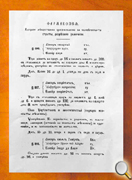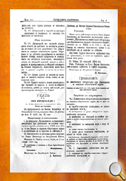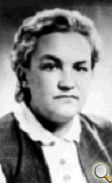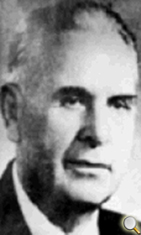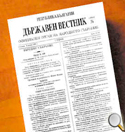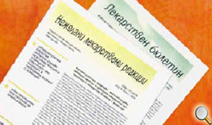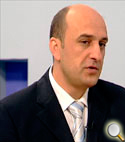Medicinal regulation is the contemporary internationally adopted term to denote the totality of activities carried out by the state in different spheres of the pharmaceutical sector so as to ensure society with medicines of high quality, efficiency and safety.
In compliance with the adopted terminology nowadays, established on the basis of long scientific and practical experience, a medicine is any finished product which is a substance or combination of substances intended for the treatment or prophylactics of diseases in people and is offered in a finished package, as well as a substance or combination of substances administered to people to diagnose or recover, correct or change man’s physiological functions.
This definition emphasizes the useful and more popular aspect of medicines. Yet the latter is a product which may be dangerous as well.
This was a fact known by the ancient Egyptians and Greeks, who 1000 years B.C. controlled the production of healing remedies. This was a fact known by the muddy ahibi in the Arab countries, who controlled the extracts contained in medicines at that time.
That is what the people of the 20th century recalled, when in the early 60’s, the thalidomide, taken against morning indisposition, led to the birth of more than 6 000 babies with deformities. The thalidomide tragedy made people understand that medicines are products which require an obligatory, constant and stricter control, in compliance with the development of human knowledge.
Bulgaria is a country which in its postliberation history has paid due attention to this process and today, grounded in tradition, is defending its place of a European country with an up-to-date medicinal regulation.
The doubtless success of BDA during the latest years includes:
- The Ethics Code approved by an order of the General Executive of BDA in 2000.
- The invitation made to experts from the Agency to participate as observers in the working committees at EMEA of September 2003.
- In June 2004 the Act for ratification of Convention 50 for developing the European pharmacopoeia was approved. After presenting the accession documents of the General Secretary of the Council of Europe in September, Bulgaria’s membership will come into force on 22 December 2004.
- The participation of the Agency’s representatives in different programs and projects is ongoing, the more large-scale of which are the Pan-European Regulatory Forum (PERF), the working groups at EMEA, WHO, the Drug Information Association (DIA), the European pharmacopoeia – in the sphere of the control of the manufacture, OMCL and other working meetings, conferences and training.
- The publications of BDA’s employees under the form of reports and articles in the most prestigious issues in the sphere of medicinal regulation and other specialized spheres.
- BDA’s hosting of a couple of international inspections by EMEA, WHO, the European pharmacopoeia – in the sphere of the control of the manufacture, the administrative capacity of the Agency, in the sphere of the control of the clinical trials, to ensure high quality in its laboratory activity. Bulgaria has been the host of a number of working committees under PERF.
- The free Internet access provided via the Agency’s web site to a large amount of information related to its activity. The data base of the medicines with marketing authorizations is up-dated weekly, the new normative documents are published both in English and Bulgarian and allow access to forms and applications (in pdf format), approved by PPSHMA and its ordinances.
- BDA’s information system, which was supplemented by up-dated hardware and software. An opportunity was provided for the industry to follow the course of the operating procedures on granting marketing authorizations of medicinal products. This system (Drug Dossier Tracking and Traceability) is the only one of its kind by now and raises interest.
-
Signing an agreement with the European Medicines Agency (EMEA) within the PHARE program:
-
Reimbursement of the expenses for the participation of the BDA representatives as active observers in the following committees and workshops of EMEA:
- Committee for Human Medicine Products, plenary (CHMP plenary).
- Committee for Human Medicine Products Biotech (CHMP Biotech).
- Efficiency working group at CHMP.
- Safety working group.
- Pharmacovigilance working group.
- Pediatric expert group.
- Herbal Medicinal Products Committee, plenary (HMPC, Plenary).
- Committee for orphan Medicinal Products, plenary (COMP Plenary).
- Scientific Advice Working Group.
- Inspectors on Good Manufacturing Practice (AD hoc meeting of the inspector’s offices on Good manufacturing Practice).
- Inspectors on Good Clinical Practice (AD hoc meeting of the inspector’s offices on Good Clinical Practice).
- Inspectors on Good Laboratory Practice, CHMP/CVMP Quality (united working group on the quality of medicinal products – human/veterinary).
- Quality Review of documentation group (QRD).
- Eudranet telematic group.
- Europharm telematic group.
- Eudravigilance telematic group.
- Eudra telemetric group for clinical trials.
- Management board.
-
Reimbursement of the expenses for the participation of the BDA representatives as active observers in the following committees and workshops of EMEA:
- BDA integration if the EU telematic system.
- Conducting a pre-accession linguistic check of the Bulgarian variant of the information (Product information) of the medicinal products (Summary of products characteristics, leaflet and package labeling), having a marketing authorization under the centralized procedure of the European Union.
- Conducting an analytical control within the joint trials (departments of the Chemical-Physical Expertise of medicines and Pharmacovigilance), organized by the European Directorate on the Quality of Medicines (EDQM) on the monitoring of the market (MSS), qualification trials (PTS) and chemical comparative substances (CRS) of the European pharmacopoeia. The BDA laboratories have been included for ten years in the network of the European Network of Official Medicines Control Laboratories (OMCL) at EDQM.
-
Medical devices – inclusion of BDA employees in the following working groups of the European Commission related to the medical devices:
- Consultancy Committee for approximating the laws related to the medical devices in the member-states.
- Medicines and medical devices.
- Working group on monitoring the market.
- Expert group on medical devices – classification and border products.
- Expert group on medical devices – vigilance.
- Working group at the notified bodies.
- Participation in the development of the new Pharmaceuticals and Pharmacies Serving Human Medicine Act and new Medical devices Act.
BDA performs its regulatory activity in cooperation with the following specialized commissions, established under art. 21 of PPSHMA at the Ministry of Healthcare:
- Specialized Commission for Assessment of the Therapeutic Efficiency and Safety of the Medicinal Products (SCATESMP).
- Specialized Commission for Assessment of the Therapeutic Efficiency and Safety of the Medicinal Products – phytogalenic and homeopathic (SCATESMP – PHGH).
- Specialized Commission for the Authorization of the Conduction of Clinical Trials (SCACCT).
- Central Ethics Commission (CEC).
- Specialized Commission for Assessment of the Therapeutic Efficiency and Safety of the Medicinal products – vaccines and medicines under art.3, par. 3 (SCATESMP – V).
- Specialized Commission for Assessment of Medical Devices (SCAMD).
- Specialized Commission for determining the belonging of the products (SCDBP).

